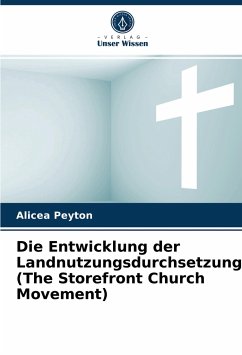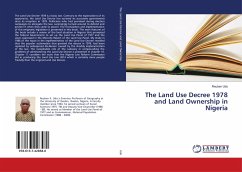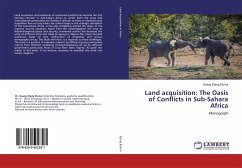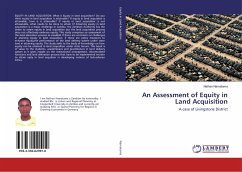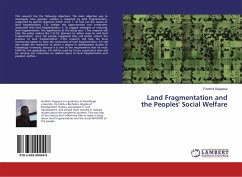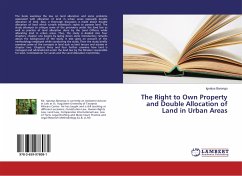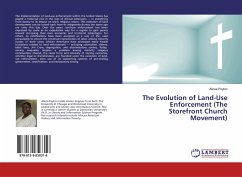
The Evolution of Land-Use Enforcement (The Storefront Church Movement)
Versandkostenfrei!
Versandfertig in 6-10 Tagen
27,99 €
inkl. MwSt.

PAYBACK Punkte
14 °P sammeln!
The implementation of land-use enforcement within the United States has played a historical role in the lives of African-Americans --- in everything from slavery to its impact on black religious values. This evolution of land development can be traced back from its indigeneity during the stone age era unto this day. Over the years, land-use enforcement has been expressed by some as an exploitative way for a regime to gain power toward increasing their own economic and territorial advantages. For others, its ramifications have been accepted as a way of life, used persuasively to ensure the cont...
The implementation of land-use enforcement within the United States has played a historical role in the lives of African-Americans --- in everything from slavery to its impact on black religious values. This evolution of land development can be traced back from its indigeneity during the stone age era unto this day. Over the years, land-use enforcement has been expressed by some as an exploitative way for a regime to gain power toward increasing their own economic and territorial advantages. For others, its ramifications have been accepted as a way of life, used persuasively to ensure the continual reproduction of labor among minority classes. In both cases, African Americans have witnessed many hostile transitions related to land enforcement --- including colonialism, slavery, black laws, Jim Crow, segregation, and discriminatory zoning. Today, zoning inequality remains a problem among minority religious communities. Overall, the racial force and intensity of zoning outcomes, whether legal or discriminative, are founded upon the evolution of land-use enforcement, even use of its supporting systems of pre-existing government, stratification, and exclusionary zoning.



